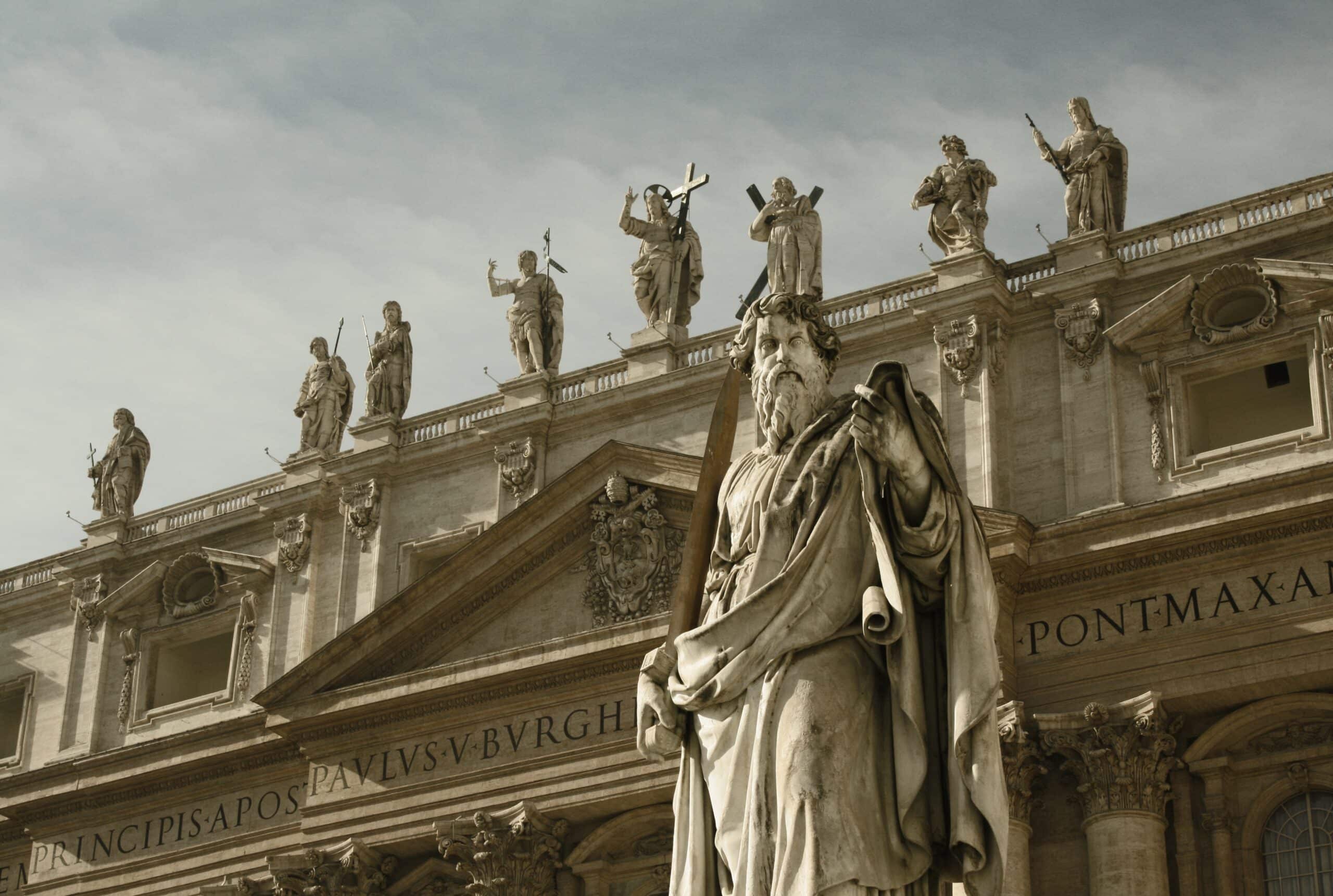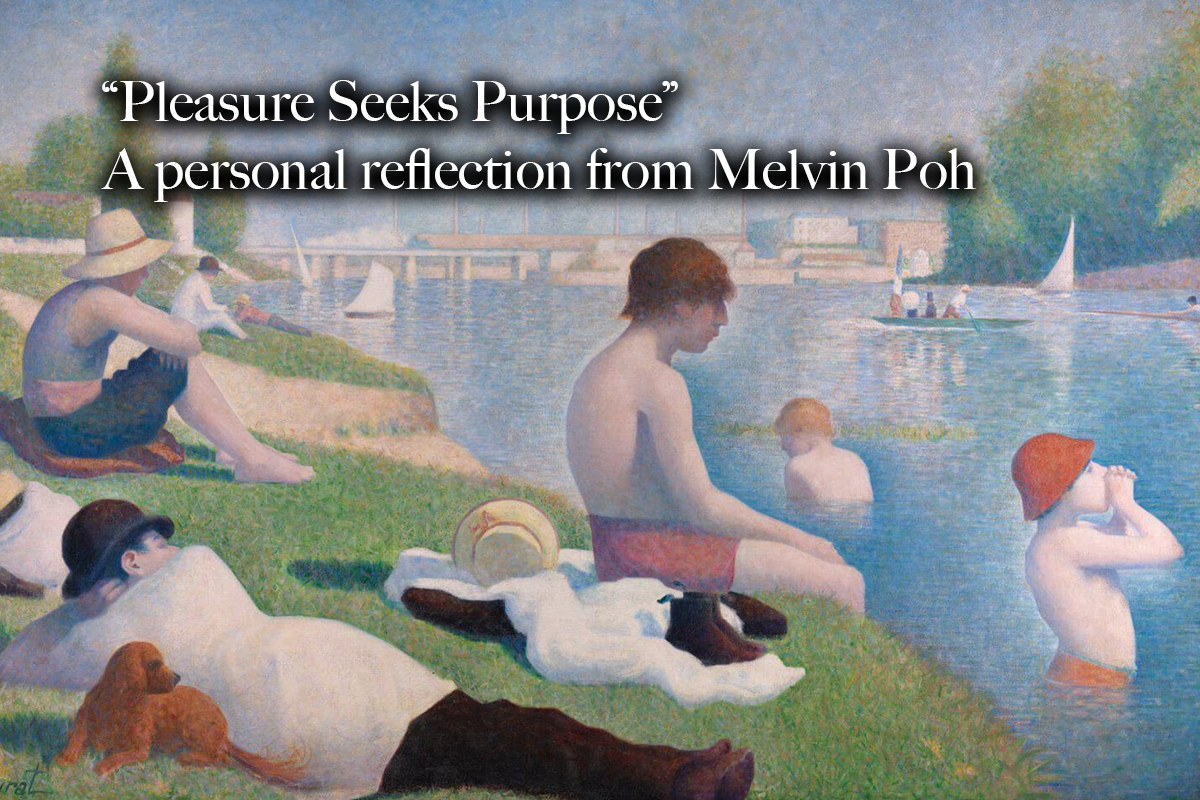
The MIRROR OF TRUTH: KNOWLEDGE IN DEMOCRATIC STATES
Introduction: Knowledge and The State
Great tensions and conflicts have always pervaded the relationship between scientific-knowledge/expertise and the state. Precedents of such strain are traceable countlessly throughout recorded-history; perhaps first and most prominently witnessed in the execution of Socrates for “corrupting the youth of Athens” with ‘false‘ knowledge and later again with the prosecution of Galileo for spreading ‘blasphemous’ and ‘fallacious’ discoveries. If one thing is certain, if a lesson was learnt from these pages of history, it is that from hindsight, these individuals were amongst a few of the most astute men in history, and that their expertise and scientific discoveries have significantly contributed to further innovation and development to human social-thought, perception and understanding. Since then, scientific-knowledge has been progressively accepted by the state and we have now reached the stage, where in contrast to persecution, knowledge is not only embraced and encouraged but is also in fact fostered by the state. Although it seems that we have arrived at a pinnacle in human establishment; ambiguous questions still largely loom over the relationship of scientific-knowledge and the state, conceivably the major one being “what is the appropriate way to incorporate scientific-knowledge into the state, particularly the democratic state?”. Perceived contentions exist here because although the relationship between the state and science is drawing closer and closer, there is a real potential that the state and science could become completely enmeshed, which could (1) hinder the true production of scientific knowledge itself(through the involvement of political entities in its actual production); as it is believed that the essence of science is ‘the objective reflection of natural truths’, exclusively practiced by only those competent in its methods. Furthermore, in the context of modern-democracies; issues arise as (ii) more and more scientific-bodies are given more state responsibility public participation should be facilitated instead of state-exclusivity; there is also the fear that (iii) the involvement of political entities in these bodies could lead to a form of Lysenkoism where certain political actors/or-the-state would guide the ebbs of such knowledge in their favour in an effort to drive-forth political agendas undermining the entire essence of democracy(e.g. Eugenics & Nazism). With all these known (anticipated)limitations, it is quite surprising, that many democratic states have actually allowed a degree of amalgamation between science and the state, particularly in quasi-governmental scientific-bodies.
This is perhaps best seen with the United-Nation’s International Panel on Climate Change(IPCC), the officially-elected scientific-world-authority on climate change; which essentially assesses and determines the available-science on climate change; the twist being, that the information discerned is ultimately approved and reviewed by state-representatives.
Although this appears to be, if not betrayal, an outright threat to democratic principles, it is ultimately submitted in this discourse, despite its potential limitations, that the model adopted by most governments in this field(science/ knowledge/expertise), particularly the one utilized in the IPCC, can be fundamentally vindicated and actually captures the essence of democracy, or is at least democratically beneficial. To reconcile the critical implications posed by this submission, we must reconsider and reevaluate our understandings of the nature of/relationship between democracy, representation, governance and science itself.
Firstly, we must examine the ‘Mirror of Truth’..
Science: The Mirror Of Truth
“Science is the literature of truth.”– J. Bi$ings
It has long been thought that science is the ‘mirror of truth’. The commonly accepted-purpose of science has long been believed to be one of accurate- comprehension, to help one(the human-individual) accurately understand and perceive the natural world and the nature of the environment that he inhabits through technical method, or as J.H. Poincare puts it, “science is facts; just as houses are made out of facts, so science is facts”, facts that are ‘made out of the world’. And since it is believed that natural ‘facts’ do in-fact exist, predominate and sometimes define the world we inhabit, it is consequently believed(and not that far-sighted to claim) that true-science which seeks to serve humanity as a guiding-scope to life should be logically confined to that of an objective-mirror that reflects these ‘facts’ of the world; and anything else that departs from this defining quality is not science. ‘Objective’ in the sense that the findings of science, these absolute-truths should not be hindered and obstructed by the subjective barriers of individuals. Such beliefs are commonly donned by most scientists in their methods and disciplines, seen, for example, in the Royal Society of England’s motto: ‘Nullius in Verba’(on no-one’s word). This correlation that exists between science and objective-truth in the common perception of the nature of science is perhaps best captured by Oliva Levin Waner’s Statue of Truth, a magnificient-sculpture personifying ‘truth’ as a robed and disciplined woman holding on to a mirror that reflects the truth of the world, whilst simultaneously strangling a snake, which symbolizes the fallacies in the world.
Following this interpretation, science should be practiced in isolation (and traditionally and even commonly today it has been practiced in isolation, in restricted laboratories, etc) by competent, disciplined and technical experts. Inevitably this view would indicate that politicised science, such as that seen in the IPCC, is actually not science at all. After all, with the interference of political force in a process that requires strict-adherence to solitude, objectivity and technical expertise, how could it be still be a ‘mirror of truth’? It can’t simply put, if science is truly and solely ‘a mirror of truth’, the governance adopted in its incorporation in modern democratic states is extremely-limiting.
How then does one legitimise the current circumstances surrounding these scientific bodies?
Through the Looking Glass: True Science
“ A fact is a simple statement that everyone believes. It is innocent, unless found guilty.”– E. T e$er
Vindication for the the institutional arrangement of democratic scientific bodies can be found through an intricate and pragmatic examination of science and its inner-workings in modern society. Ultimately it seems that, in total contrast to what is commonly believed, science is actually more social and political than objective, and that difficulties surround the claim that science is solely ‘objective’.
(A) Firstly, science can be uncertain.
Although the idea that the world is solely fashioned from discernible absolute- truths, is a comforting one; the truth is many areas of science are indeterminate. In spite of the existence of certain attributes of the natural world that appear to be absolute-truths(e.g. the laws of physics) and save these few attributes, there are fields of science that are incapable of arrant interpretations; fields which are in fact open to speculation and capable of different expositions. Far from being absolute-facts, in verity, there are innumerable scientific-established ‘facts’ that are challenged and repudiated. The science on climate change is a perfect exemplification of this actuality. Despite the commonly acknowledged theory that ‘the climate is currently warming’ and that this change in climate is attributable to excessive amounts of greenhouse gases in the atmosphere caused by human activity; there is a lot of dissension in the scientific community on the actual causes of global warming.
Opponents of the consensus scientists believe that global warming is largely unproved or highlight and believe that the area is unsettled science. Some claim, that “the recent warming trend in the surface temperature record cannot be caused by the increase of human-made greenhouse gases” and that even if “there is evidence of global warming…warming does not confirm that carbon dioxide is causing it. The climate is always warming or cooling”. Others highlight against this consensus, that studies of ice cores show that the carbon dioxide levels rise and fall throughout the centuries and that the existence of carbon dioxide in the atmosphere is not the cause of warming, but the result.
The varying views in the scientific community, is further reflected in the general population, as a 2007 report on the public perceptions on global warming in the UK conducted by the Ipsos MORI reported that the public is out of step with the authoritative view, with 41% believing that climate change is also being caused by natural processes and 46% believing that human activity is the sole cause.
The uncertainty seen in the field of climate change demonstrates that the general belief of science as a mirror requiring objectivity in ‘reflecting truth’, does not and can not apply to all matters of study; followed by the fact that certain instruments required for solving certain scientific-issues are inchoate; we can conclude that there are areas of science that are uncertain. In light of this, Dr. Vicky Pope, head of Climate Change Advice, asks: “Why is everyone so surprised when we say that climate change is uncertain?…areas of science progress through constant challenge and exploration of the boundaries of uncertainty- what is important is to be able to evaluate that uncertainty as science is uncertain. Climate science is no different.”
(B) Science can be social.
Aside from being uncertain, science is also predominantly social, notwithstanding its antisocial appearance(associated with isolation-image of science). This is because the production of scientific-knowledge or fact in this sense, does not only involve a single party, the scientists, but a multitude of actors. From a micro- scale, we see this from the scientists conception of the idea, to the supporting technicians, to the contracted individuals(of materials in certain contexts), to the public debate on the theories, finally to the public acceptance of the theory as scientific fact. At a macro-scale, a good example, can be seen with Pasteur’s find- ing of the microbe, which required the (micro as discussed) underlying cooperation of a broad range of associates who were necessary in establishing Pasteur’s discovery. To the transformation of a disease “from an individual affliction managed to ad hoc local practices into a societal problem subject to scientific control relied upon a diversity of players: civil servants, epidemiologists who collected and evaluated data and the public hygiene movement that promoted his ideas”.
That said, science is also social in the sense that far from being objective, scien- tists are social, as studies conducted by Science-and-Technologies scholars, nota- bly by Ludwig Fleck have demonstrated that ‘social, political and cultural values may affect and influence scientific research’. STS scholars claim that individual values, aspirations and beliefs underlie and drive scientific research and ulti- mately the creation of scientific knowledge. Far from being automatons, undeterred by the ‘mirror of truth’ and it seems that the human mind is like an “uneven mirror…in forming its notions mixes up its own nature with the nature of things.”
(C) Science can be Political.
Most astonishingly, science is actually by nature, very political to begin with. This is because a lot of matters dealt with by science are matters that possess the potential to affect the public-sphere. However, aside from this, science itself, the production of scientific knowledge can actually directly influence and impact the human individual in a very personal sense.
Firstly, certain topics dealt with by science are issues that properly find themselves in the public-realm, these topics normally have the potential to affect everyone/society at large; and hence the oft-image of the isolated-and-exclusive science soon finds itself unbecoming(particularly in a democratic societies- explained later) such issues may include, human genome research, to environ- mental issues, within our context- climate change which is a potential threat to the human environment/established life. It is the transforming of what was ini- tially a private avocation to what is essentially a public affair, that transform pri- vate science to what, Dewey calls a ‘proto-public’. This proto-public issue is no longer and rightfully seen and labelled within the recluse of the scientist that holds the ‘mirror of truth’ , as it is well expounded in roman legal principle, ‘quod omnes tangit, ab omnibus tractari et approbari debet’– ‘what touches all should be right- fully considered and approved by all’. Regardless of this, even in the most obvious sense, the technological innovations that spew from scientific innovation, can di- rectly and physically affect all(e.g. fission technology) all of which will essentially become political. To confine science within the restricted recluse of the scientist is manifestly hypercritical and against basic political theories.
Nevertheless, the production of scientific knowledge can also directly influence other individuals and accordingly become similarly political . As aforementioned, the primary purpose of science is one of comprehension, mainly in assisting others to comprehend and perceive the world. The approach adopted and the scientific materials generated could really affect an individual, in perceiving his world and his purpose, but most importantly, it may affect and modify the individual’s sense of self identity and self-value constructions. Science in this sense, is a ‘technology of power’, more specifically a ‘technology of self’ as conceptualised by Foucault. According to Foucault, there is complex albeit immediate a relation- ship between knowledge and power. In that knowledge is capable of power through shifting and modifying an individual and through discipling, producing or shaping people’s behaviors through shaping their self-conceptions.He claims that power is not merely exercised in the form of commands and that power can pervade all forms of knowledge. For example, scientific evidence that disproves theological theories, could result not only in personal shifts of values and identities but also in political power shifts of power in society at large. Or how the shift in the believe that human activity is responsible for global warming has led to a different practices at the domestic level(i.e. the purchase of hybrid cars, green- practices) and the development of transnational institutions and practices( i.e. the IPCC and the Carbon Market) at the international stage. In the same sense where legislation is passed governing individuals and matters that affect individuals in a juridicial setting, science is also legislative in passing natural laws that intricately affect the individual. Correctly, said by Foucault, knowledge, even scientific knowledge, “is not for knowing, it is for cutting”.
Jointly, it seems that science is actually more political than imagined.
(D) Hence, science is potentially uncertain, social and political
It is with this understanding that science is potentially uncertain, social and political that calls for the political participation in the production of scientific knowledge. In the view of the fact that science is (A) uncertain and is open to interpretation, as opposed to science being objective, strictly-disciplined and reflective, the participation of others in the production of scientific knowledge, in scientific bodies does not hinder its construction.
The apparent intrusion of others, is also vindicated by the fact that science is (B) often social to begin with; often created in a process that involves multiple other actors and players, the objectiveness again disproved often with the own subjectiveness of the individual scientists.
Finally, political participation in scientific bodies is legitimized because science (C) is capable of becoming highly political. The participation is not only legitimised but required particularly in democratic societies, because in light of democratic traditions, what is political needs to be politically represented adequately. Particularly, when we understand that science may dictate the course of a people both from the outset and the inset. It is only a failure to accept the pragmatic realities of science as being political and instead objective and sacred that leads to potential Lysenkoism as the output of such scientific influences would not be properly checked and catered by the constituents, particularly when such matters touches them directly.
An anticipated dilemma may arise from these propositions- ‘if science really does allow and require democratic political participation, how do you justify the participation in most scientific bodies, as being only restricted to governmental- representatives, and not lay-people or the constituents directly. Is this not science being restricted in another sense?’ This is indeed a good question, fortunately it is one that can be easily resolved after examining the true foundation of democracy- representation.
Democracy and Representation
“You get fi%een Democrats in a room, you get twenty–five opinions.”–P. L eahy
At heart democracy follows the belief that the government is solely constituted ‘for the people’, and that through its institutions, the state captures and ascertains the will of the people and governance is conducted under this general will, simplistically translated, democracy is “the rule of the people by the people”. To its fullest and most direct implementations, the constituents occupy the governmental bodies(executive, legislative and judicial) and deliberate directly on public matters(similarly, in its truest extent, the constituents should occupy scientific bodies such as IPCC, contrary to its current/actual composition). Variants of such ‘direct-democracies’ have actually existed and dominated history, the most notable being the direct-democracy of Ancient Athens in the 500th BC, where every citizen deliberated and legislated on virtually every state-matter. However the democracy soon gave in to instability and collapsed in the 300th BC. The major instability that plagued Athenian democracy lied in its state-deliberation process which idealistically tried to incorporate all citizens in the process, forcefully unifying all citizens into a singular voice; instead of being successful in their attempt, this endeavour was met with major and common disagreements and conflicts that occurred in their state assemblies. Gradual population growth, also contributed significantly to the existing pressures of the system.
It is in truth, these very same reasons, that make direct-democracies an (long- term) impossibility in modern-developed societies, as with the large amounts of citizens, there is an issue with medium(how to unify the voices of all citizens, to discern the general will), space(where would it be held) and time in the process of deliberation(it is not imaginative to foresee that the process would be long- winding and inefficient). It is due to these impossibilities that all variants of formidable-participatory democracies have pragmatically matured into representative democracies. Representative democracies, that see the election of representatives who discern the general will, and deliberate forthwith.
Although this may seem to the laymen, from face-value, to be a second rate alternative to what many might regard as true democracy, many theorists have actually come to accept the fallacies associated with direct-democracies and have long agreed that representative democracies actually captures the democratic voice of the people as the representatives should ideally act on the wishes on the constituents(from which they were elected) and is more beneficial.Rousseau, Locke and Hobbes, for example, argued that citizens should not participate in deliberation for various and similar reasons.
Rousseau argued that excluding the public from state-deliberation is a necessary requirement as he claims that, in light of the practical restrictions of direct- democracies, that the inclusion of all constituents in deliberation might lead to an obscurement of the general will; as he believed that deliberating constituents might influence one another, and that there lack of training of these constituents to fear and flattery could lead to amateur deliberation, the only solution is where
“an adequately-informed person deliberates, the citizens were to have no communication among themselves, (then) the general will would always result…the deliberation would always be good.”
Interestingly, these philosophers believed that representative governance was not a breach of democratic principles. Rather representative governance was still rooted in the democratic spirit, as they claimed that representative governments were elected and validated under the constituent’s will and properly-fit should enact the constituent’s will. This concept was best seen in Hobbes writings, who argued, that a person’s actions and words could be “considered, either as his own, or as representing the words and actions of others.” and that “when they are considered as representing the words and actions of others, he is an artificial person”, here he draws a distinction between constituents and constituent’s representatives, ultimately claiming that the artificial-persons/or representatives, are akin to stage-actors, they do not own their actions and undertake them on behalf of others. They acknowledge that a failure to act upon the prefixed agenda on which the representatives were elected should result in the invalidation of the powers of such representatives. Although ultimately, the constituents must take up responsibility for their representatives actions rather than play an idle role. Dewey similarly holds the view that the modern democratic citizen rather than play the role of participant, plays the role of the critical witness.
On the other hand, it has also been claimed that lay-citizens lack the required competence for democratic deliberation and hence representative governance is the only real route to democracy. These arguments were notably put-forth by the Federalists: Madison and Hamilton. Similarly in line with the arguments for representative-philosophers, the federalists believed that the only pragmatic option in achieving democracy was through a model of representation, they believed that citizens should elect representatives rather than participate in deliberation. However they argued that the elected representatives should be competent in sense of being more virtuous, disciplined, and possessing greater talents, wisdom and knowledge than those who elected. These traits distinguishes the constituents from these representatives and that it is only through such characteristics can the public good and confidence be established in the government. As it is these characteristics that should allow representatives to refine the general will and make the best decisions in light of public interests.
Together with the preceding discussion, these commentators point to a division of labor at the heart of modern democracy where the constituents express their interests through the voting procedure, channelling their will into popular sovereignty, as the representatives elected should employ state-powers to achieve the popular will; and although deliberation is largely a responsibility and a role played by the representatives, the constituents should also partake an active responsibility and role as critical witnesses to the execution of their will. In this sense, they do not need to be in the ‘production line, to enjoy the product’(similarly, the captain of the cruise to direct a cruise)
Applying this understanding to the context of scientific-bodies, the constituents are actually democratically-represented in an adequate manner. As their representatives, are technically acting within their interests and expressing and acting on the nation’s general opinion on the matter. (If a state’s involvement within the IPCC is truly against the wishes of the constituents, as aforementioned, the constituents have the responsibility to enforce their will.)
It should be assumed that the participation of a member-state in an international scientific-body, such as the IPCC, is democratically adequate, despite being a body that is also dominated by other political forces, because the constituents technically voted for the representative government understanding its legislative and political agendas. Theoretically, the domestic constituents(as represented by the domestic representatives) have chosen to join amongst others, on an international movement and to voice out their concerns in what is an international unsettled issue.
Conclusion
“When we are looking for faults, use a mirror, not a telescope.”
After an extensive evaluation of the nature of science, it seems that science is not the ‘mirror of truth’ that many claims it to be, and that such a few is too simplistic; however at the same time, it must not be forgotten that science has the ability to educate and enlighten; rather than being a ‘mirror of truth’ science should be seen as a clear ‘telescope’ , an instrument that serves and assists one in gaining a further understanding into the complex world that we occupy. A tool that is particularly useful for proper political-governance.
Likewise, as being entrusted with the latent democratic powers of their constituents, politicians/and political representatives-alike should be well advised and not overlook the importance of expertise and scientific knowledge, particularly in issues that raises public-questions. However, in this delicate process, they musnt overlook the objective and the root of their power which ultimately lies in democracy. Yet with this being said, it must not be forgotten that the ultimate vanguard of democracy is the people, who must play critical witnesses in ensuring its due-process.
Ultimately, with all these factors in consideration, it is not hard to see and nor illogical/and absurd to submit that the position of scientific knowledge and scientific expertise(particularly, in the fields of climate science) has indeed been properly captured in today’s democratic state.



